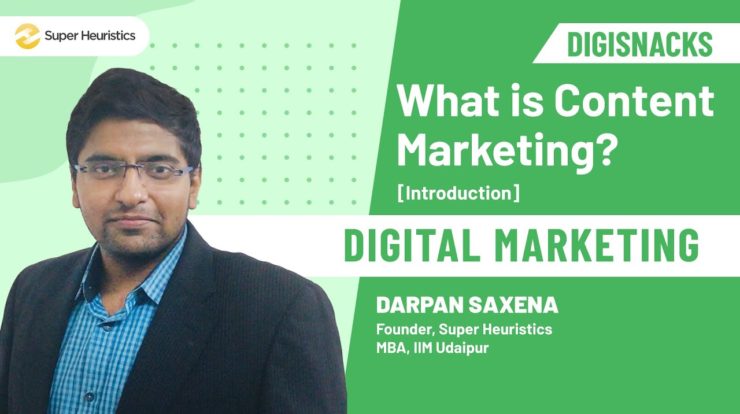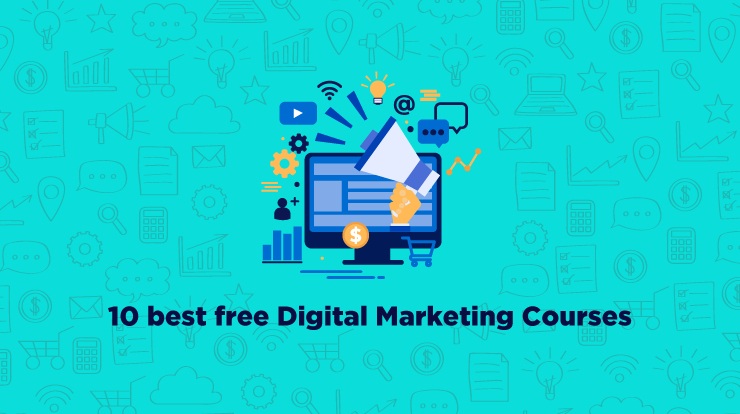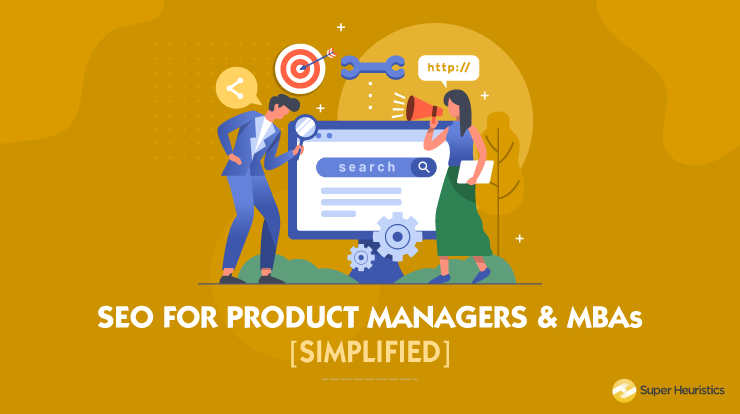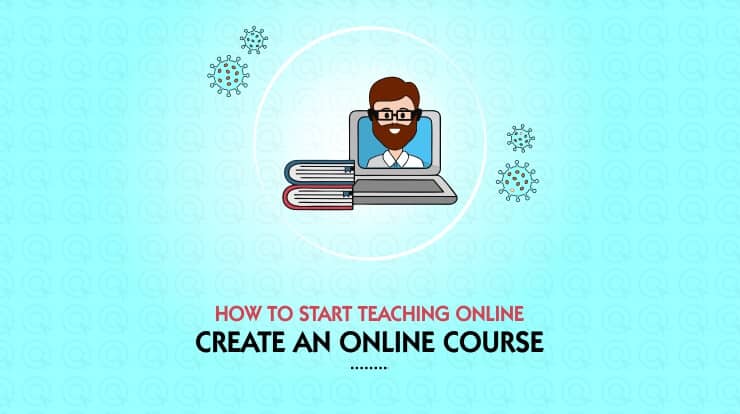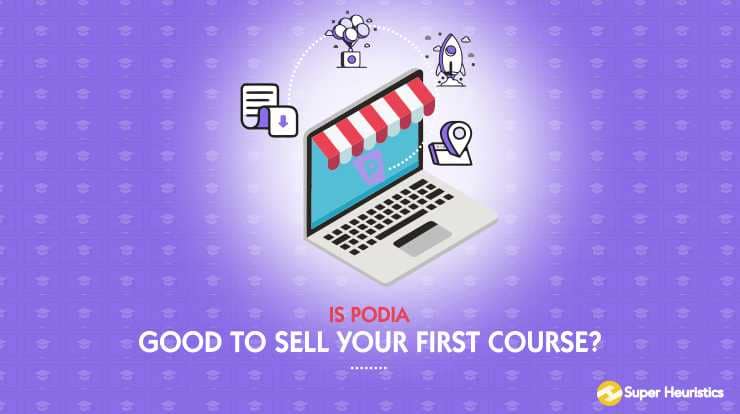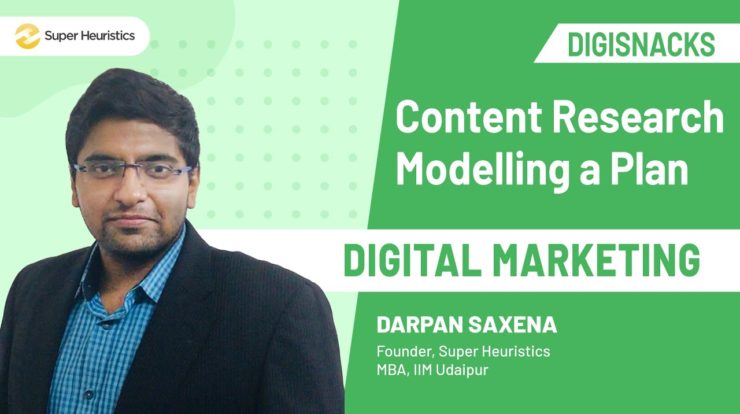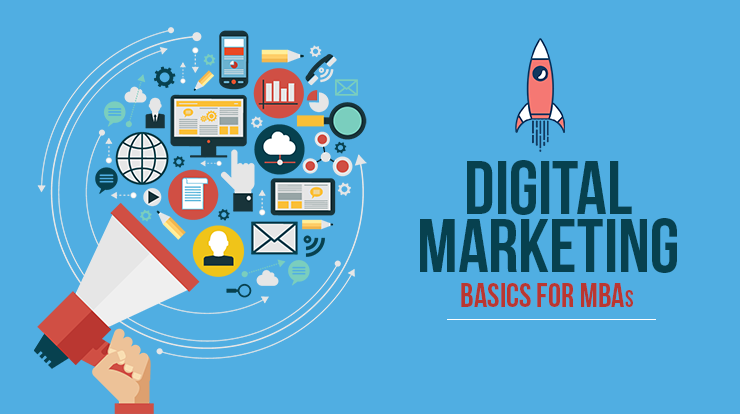
Looking for the first dive into the basics of digital marketing concepts? Or, do you want to be a digital marketing manager?
If you wish to understand what is digital marketing, you’re reading the right article.
I’ll take you through the impactful world of Digital marketing which is transforming the way businesses are done.
By the end of this read, you’ll be able to clearly understand all the basics concepts that make up what we call Digital Marketing.
Also, I must mention that if you are looking for actionable insights that would help you run your first marketing campaign, then this article isn’t for you.
The Digital Marketing Context
From the first P&G product in the world to the emergence of personal branding on social media, marketing as a concept and as a practice has evolved drastically.
In essence, Marketing is everything and anything a company does to make its products reach its potential customers.
One of the definitions of marketing suggests that it is anticipating and satisfying the needs of the customers.
Today, digital marketing is becoming a reason why most companies have an edge over others.
And yet most of the B-schools in India and across the globe do not teach this as a subject!
The brightest minds at B-schools who haven’t worked on digital marketing before live under do not realize the depths of digital marketing.
I am amazed at how most of them feel that digital marketing is just about posting things on different social media platforms.
In fact, that is the smallest element of the entire exercise.
The content that you post is the product, it is what the people come to you for. But, if you were a digital marketing manager, there are tons of other things you have got to do to make a difference.
It is highly likely that if you land a job or an internship in marketing you will have to be familiar with digital marketing or even work hands-on on it.
Therein, the knowledge of digital marketing can act as a key differentiator for you among the rest of the crowd.
This article takes you through the basics.
What is Digital Marketing?
Digital marketing, internet marketing, e-marketing, web marketing, and online marketing – they are all different names for the same thing.
Digital marketing basically refers to satisfying the needs and wants of the customers through digital channels such as search engines (Google, Bing, etc), websites, social media platforms, email, and mobile apps.
One part of it is advertising your product/idea/experience/event through these channels. And I repeat, that’s just one part of it.
While traditional marketing uses print, TV, radio, banners for the promotion of products, digital marketing employs uses of cost-effective techniques on the internet platforms (Google, Facebook, Instagram, and Website) to intimately market to your target customers.
Quite frankly, when I started off with Digital Marketing, I wasn’t clear for a long time about what all things make up digital marketing.
I too had the false presumption that digital marketing is all about posting stuff on Facebook and Instagram.
But as I got to learn from people and got to try it out myself – I became ‘digitally wiser’.
I was surprised to see that there is so much more to it.
So if you are just like I was back then – and if you want to get a basic idea of all the things a digital marketing manager should know – the next half of the article will help you a great deal.
Here I am elaborating and explaining the different aspects and components of digital marketing for you.
1. Social Media Marketing (SMM)
In simple words, when you use any social media network or website to promote your offering, you are doing social media marketing.
You utilize conversations on social media to create a brand and sustain it. The idea is to create a brand and create awareness about your products and/or sell them.
Did you know that Facebook has 2.2 billion monthly active users? And that Instagram has 1 billion monthly active users? These numbers should surely convince you why social media marketing is so important nowadays.
And therefore, it will be no surprise to know that almost 91% of all digital marketing managers claim that social media marketing has significantly improved their brand/company exposure. 91%!
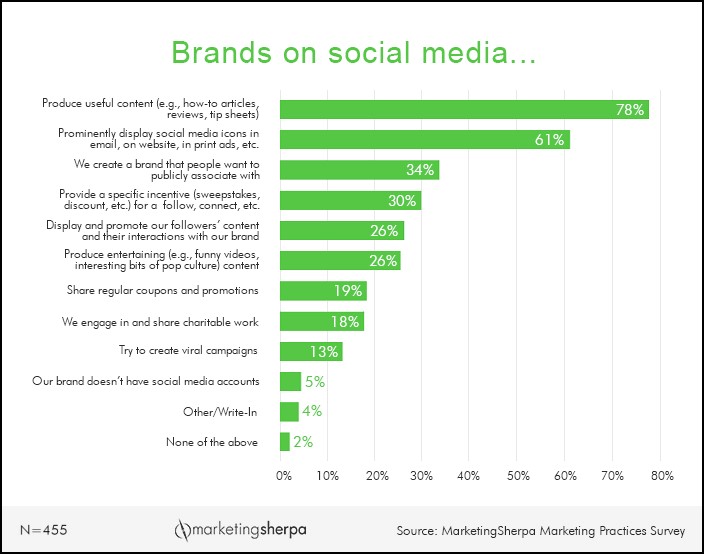
2. Content Marketing
Do you like storytelling? If your answer is yes, you are more likely to do well in content marketing.
It is a marketing approach to target a well-defined set of the audience through your highly articulated and differentiated content.
People like to hear stories and get knowledge more than just getting product information.
Many companies’ digital marketing managers today use content marketing to connect to its audience.
Zomato, Amul, Oreo, Flipkart, OLX India are some companies which have done extremely well on this front.
Like any other digital marketing method, a profitable action (i.e. link click, buying transaction, post sharing, etc) is the main goal of content marketing as well
An example?
This article that you are reading is one of the examples of content marketing.
Through the vehicle that this blog is, I share knowledge with you. I and Super Heuristics try to share this knowledge through stories.
Isn’t that better than us trying to sell you products, out of the blue?
3. Search Engine Optimization (SEO)
Extending that point about content marketing. If you publish articles on a blog, or if you run a forum – SEO is your bread and butter for growth.
SEO is about writing content on your website that sends relevance and quality signals to the Google webmaster.
SEO has two parts – and you would have surely heard of them – On-page SEO and Off-page SEO.
On-page SEO is the optimization that you do on your page to tell Google that your content is relevant to the particular keyword.
Off-page SEO is the optimization you do beyond your website, like getting people to link your content in their content. This tells Google that not only is your content is relevant to the keyword, but the quality of the content is good.
Why?
Because someone backlinked your content.
Read: How I got my blog posts on page 1 of Google (in 2 weeks)
SEO increases the quantity as well as the quality of traffic (users) to your website using organic search engine results.
The results from SEO, SMM, and Content marketing are highly correlated. These three are done simultaneously to achieve synergies out of your efforts.
It is the responsibility of you as a digital marketing manager to see how all these are coherently utilized.
How is this played? Well, Social media marketing and SEO are linked directly to each other.
The brands with the most engaging pages and content are usually the ones which pull the larger number of genuinely interested people towards them.
The more people that come to your website, Google would get a sense that your content is really good.
If Google thinks your quality is good, your pages will show higher up the google search results.
And if it ranks higher, even more, people will visit it, therefore, kicking off a virtuous cycle of traffic.
4. Search Engine Marketing (SEM)
When you search for something on Google, you must have seen paid results (marked with ‘Ad’) That is Search Engine Marketing, more specifically, Google AdWords.
This is a type of Pay-Per-Click advertising.
What is PPC?
Keep reading to know more.
5. Pay-Per-Click Advertising (PPC)
In PPC, you as the digital marketing manager are charged every time a user clicks on your ad and comes to your website.
Google Adwords is an example of PPC advertising.
Many companies run a PPC campaign to promote their products.
For example, Search ‘buy Microsoft office’ on Google.
The first result you will see is an ad run by Microsoft.
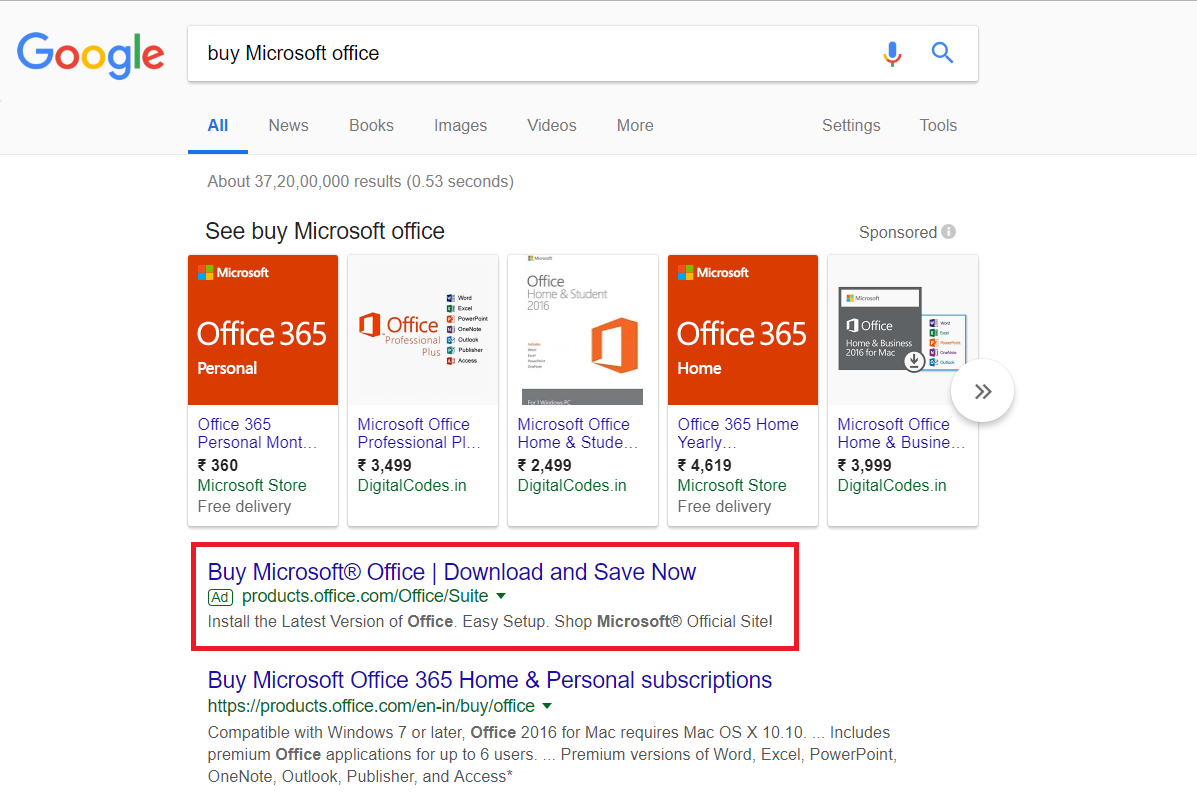
PPC on the social media platforms is called Social PPC (not so creative!).
You can target social PPC ads based on demographics, interest, or other data.
As a digital marketing manager, you do need to measure how good your campaign is doing.
How do you measure it?
Some of the metrics to look at while measuring the success of your PPC campaign are:
Number of Impressions – How many times your ad was displayed in a search results page.
-
- Cost – The total cost for all clicks on your ad.
- Clicks – The number of times a user clicked on your ads.
- Click Through Rate (CTR) – The percentage or ratio of clicks divided by Impressions.
- Average Cost per Click (CPC) – Total cost divided by the total no. of clicks.
- Average Position – The average of your rank on the search results page is your ad showing.
6. Affiliate Marketing
Affiliate Marketing is when you promote third-party products on your page or website and get compensated for each transaction that happens through you.
This again works the best in parallel with content marketing.
For example, you could make money by doing affiliate marketing for a trimmer available on Amazon.
For that, you could consider writing an article on a product review of that trimmer and insert a link leading to the trimmer’s Amazon page.
If someone clicks that link and buys the product from Amazon, you get paid a certain percentage of the sale as commision.
This again brings back the importance of content marketing.
No one likes to be sold to.
But everyone likes to be educated and told something which they don’t know of and are looking for.
What kind of content would attract a person more?
An article saying – ‘Buy this Philips trimmer right now’ or ‘7 ways how you can trim your beard in style’?
Most likely the second one which educates you.
This is a performance-based type of marketing. The more you sell, the more you earn!
7. Email Marketing
Email is one of the highest converting channels for digital marketing.
Personal conversations shall award more customers than just bulk emails.
There have been many successful email marketing campaigns by many brands. Uber’s calendar integration campaign, Buzzfeed’s newsletter campaign are few of them.
Effective email marketing has the potential to convert prospects into customers, nurture leads and turn one-time buyers into some loyal, raving fans who will continue to be with you for a long time.
Statistically, people who buy products marketed through emails tend to spend on an average 138% more than others.
E-mail marketing has an average ROI of 3800% (Amazing, right?)
And if you want to compare it with social media marketing, think again: Order value through email is 3 times more than through social media.
Mind blown?
Conclusion
Many of the times the line between different types of digital marketing techniques are blurred.
They run parallelly or encompass one another.
You are already aware of TV, radio, SMS advertising and other conventional methods of advertising. And there are many reasons why digital marketing has a great edge above all of them
It is a no-brainer that digital marketing is easily measurable and adaptable. Along with that, it ensures long and personal interactions with the customers.
And not just that, it also ensures scalability in terms of the customer reach.
I have listed down the various aspects of digital marketing for you to know as a digital marketing manager in the future.
Most companies use at least one of the many digital marketing components mentioned above.
It depends on you and your overall business strategy as to how you want to approach those methods.
The fact is that as soon as a person is on the phone with an internet connection, digital marketing comes into play.
The shift to digital media is precisely the biggest reason why digital marketing is essential for any brand today to survive.
Thus a knowledge of all these things becomes essential to advance in your careers. This article provides you with the first dive into the vast world digital marketing.

